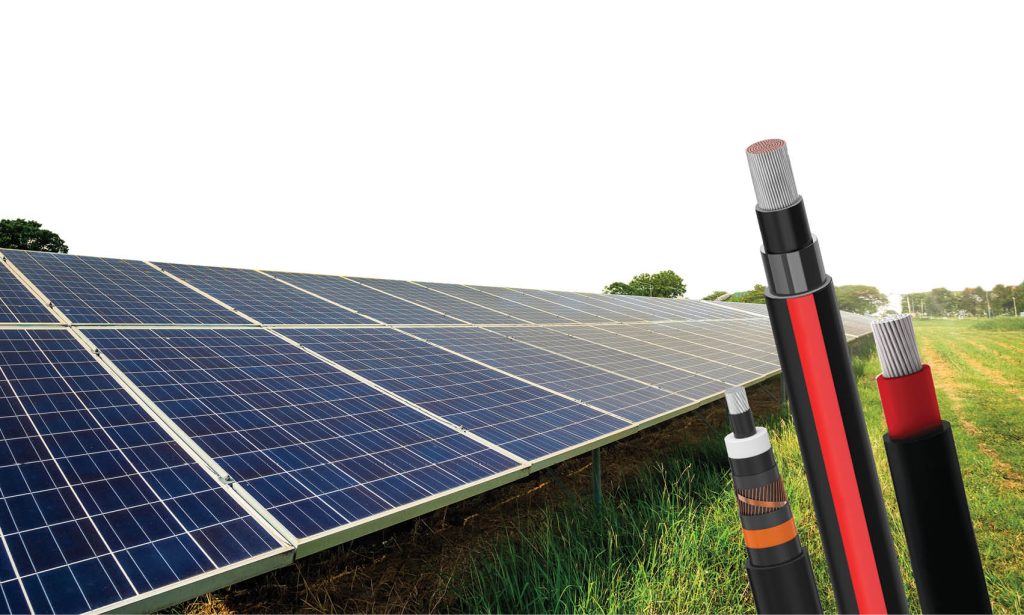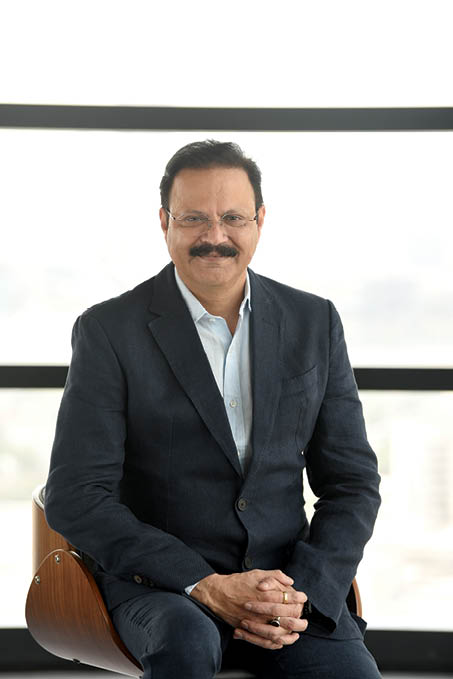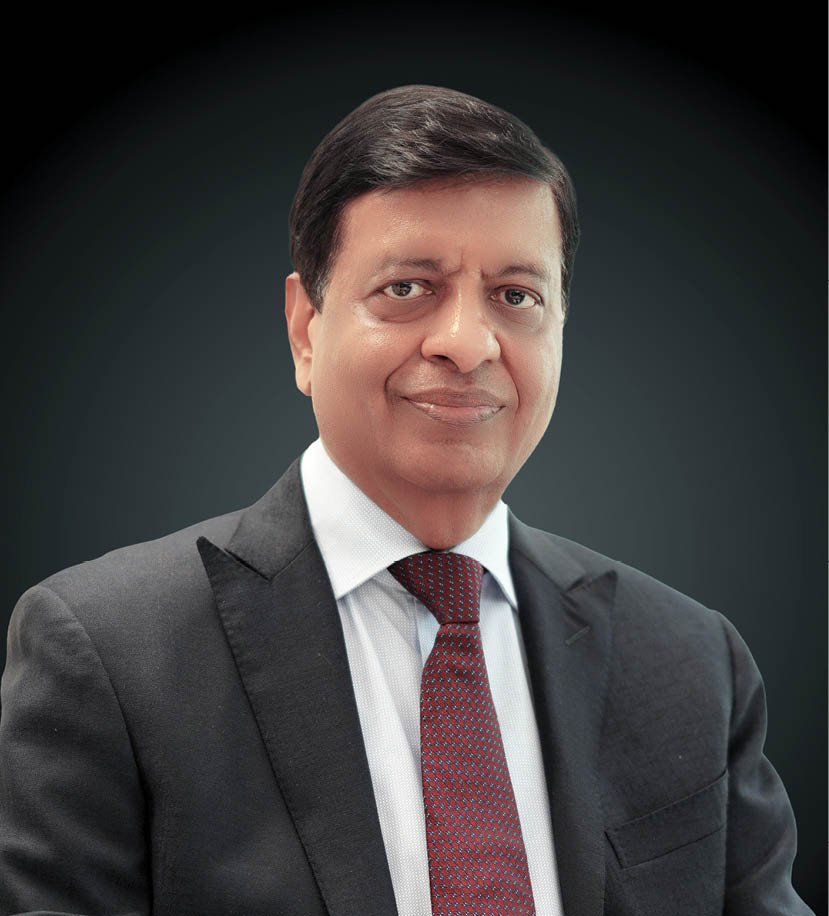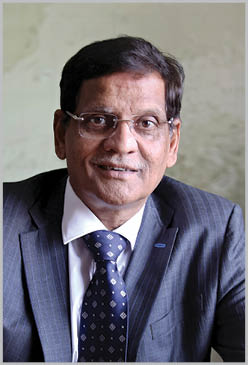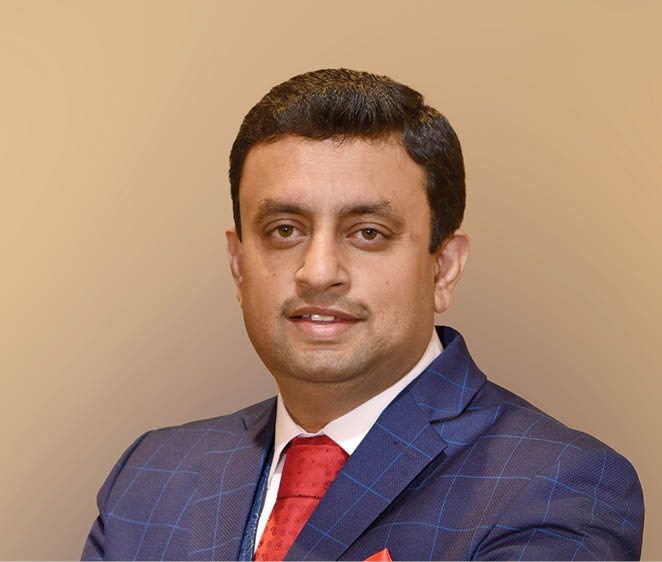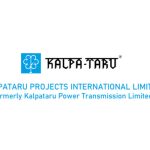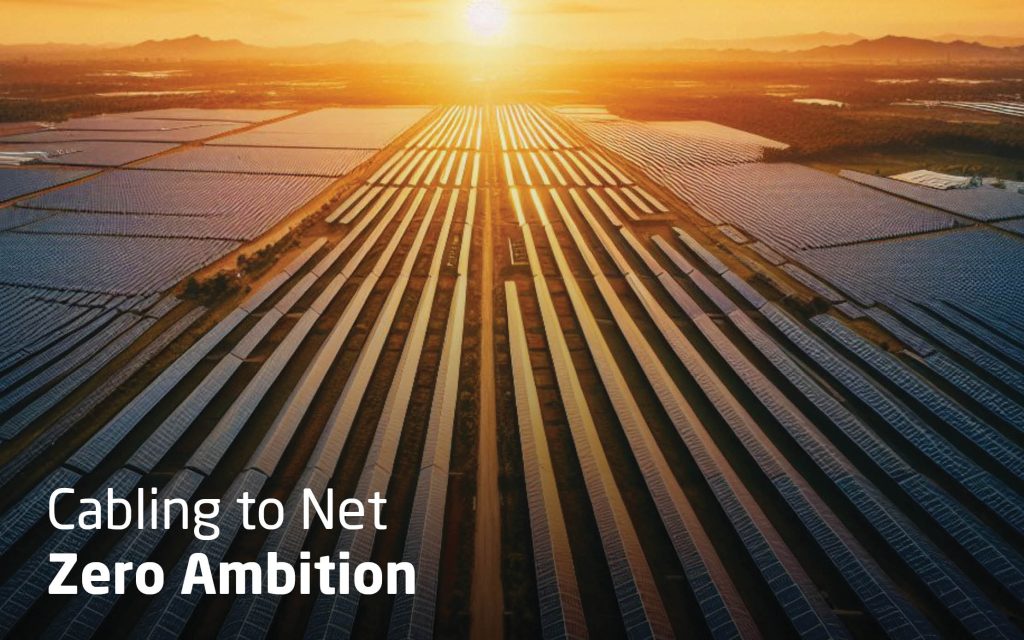
To achieve India’s renewable energy goals, it essentially needs solar cables, which are crucial for transporting electricity generated by solar systems. These cables must fulfill rigorous standards for flame resistance, heat and weather resilience, corrosion and UV protection, aging durability, electrical conductivity, insulation, mechanical strength, and abrasion resistance. Their role is critical to the operation of photovoltaic systems, similar to the function of vital veins in a body.
As cities struggle with smog, heatwaves affect regions that typically experience mild summers, droughts become increasingly frequent, and storms cause damage in unexpected areas, the message is clear: global warming is upon us. A united global initiative is already underway to address this issue, starting with the reduction of carbon emissions and ultimately aiming for net zero emissions. The vehicles we drive, public transportation systems, household appliances, factories producing goods, and large buildings, including offices and homes, must all transition to renewable energy sources. These can include wind, solar, biomass, or hydrogen energy. In India, solar energy has emerged as the most promising option, supported by wind energy as well. The country has substantial solar energy potential, with approximately 5,000 trillion kWh of energy available annually across its land, and most areas receiving between 4-7 kWh per square meter each day. Harnessing solar photovoltaic power offers significant scalability for India.
India’s dedication to renewable energy is highlighted by its ambitious goals: aiming to cut carbon intensity by under 45% by 2030, ensuring that 50% of electricity comes from renewable sources by the same year, and achieving net-zero emissions by 2070. A key objective is to establish 500 GW of renewable energy capacity by 2030, tapping into the country’s extensive solar resources. The pursuit of these targets has significant global repercussions, considering India is the third-largest energy consumer worldwide. Currently, India has installed 46.42 GW of wind power and 84.27 GW of solar power, indicating considerable growth prospects. In 2022, the global solar capacity saw the installation of 239 GW, representing a 45% increase from the previous year. This surge followed more modest advancements in prior years, which were affected by pandemic-related lockdowns and supply chain disruptions. The country’s increasing dependence on solar energy in factories, commercial buildings, and residential setups underscores that India is on track to realize its ambitions.
Achieving renewable energy goals, however, relies heavily on essential elements such as solar cables, which are crucial for transporting electricity generated by solar systems. These cables must fulfill rigorous standards for flame resistance, heat and weather resilience, corrosion and UV protection, aging durability, electrical conductivity, insulation, mechanical strength, and abrasion resistance. Their role is critical to the operation of photovoltaic systems, similar to the function of vital veins in a body.
Market Evolution
As countries strive to reach net-zero carbon emission targets, the demand for cables used in renewable energy projects has surged significantly in recent years, with expectations for even greater growth ahead. With India aiming to expand its renewable energy capacity to 500 GW, including approximately 270 GW of solar energy, the solar wire and cable sector has transitioned from a secondary consideration to an essential component for both suppliers and buyers. Mr. Bhushan Sawhney, Executive President & Chief Business Officer (Cables) at Polycab, notes that the growth of the solar industry has heightened the need for specialized cables that can meet the distinct demands of solar power plants. These projects often require long-distance transmission and intricate grid connections, making reliable and high-quality cable solutions imperative. He attributes the notable progress and expansion in recent years to factors like government initiatives, decreasing solar panel prices, rising energy demands, and environmental awareness. Polycab has evolved from manufacturing solar DC cables in 2012 to incorporating solar on-grid inverters, solar DC MCBs, and solar PV modules into its product lineup. According to Mr. Sawhney, the company aims to become a comprehensive source for all major components required in solar projects. He emphasizes the commitment to maintaining outstanding performance and improved output of Polycab’s solar products to remain the preferred choice among numerous EPC companies, system integrators, and end users.
As a significant contributor to the industry, advancements in technology have led to improved efficiency, durability, and performance to satisfy the rigorous requirements of solar energy applications, states Mr. Anil Gupta, Chairman and Managing Director of KEI Industries. “KEI Industries’ wires and cables has been a leader in this evolution. With our vast experience and dedication to innovation, we have created an extensive range of solar cables that can withstand extreme environmental conditions and ensure efficient energy transmission. Our products are recognized for their high quality, dependability, and adherence to international standards, making them a top choice for solar installations nationwide.” The Managing Director emphasizes that the company has strategically aligned itself to aid India’s solar mission by consistently investing in cutting-edge manufacturing facilities, advanced research and development, and rigorous quality control measures. Our commitment to sustainability and excellence has fostered strong collaborations with leading solar energy providers, significantly contributing to the growth and success of the solar sector in India, he highlights.
The solar sector is vital for RR Kabel, taking advantage of the global shift toward clean energy and India’s ambitious solar power objectives, explains Mr. Shreegopal Kabra, Managing Director of RR Kabel. Solar cables are essential components of solar power systems, and their reliability directly affects the efficiency and safety of these systems. “Therefore, we have made substantial investments in advanced technologies, such as our E-Beam facility for these cables. The solar segment represents more than just a business opportunity for us; it embodies our commitment to facilitating the global transition to renewable energy. By delivering innovative, reliable, and sustainable solar cables, we play a pivotal role in promoting the growth of solar power and contributing to a cleaner, greener future,” Mr. Shreegopal elaborates. The company’s extensive solar product range includes DC solar cables that comply with various national and international standards, connecting photovoltaic arrays to inverters and battery banks. They also produce innovative Floating Solar cables for submerged installations. Their offerings include LT power cables for connections between panels and combiners, combiners and inverters, and inverters and transformers, as well as HT power cables for substation and grid connections. Additionally, they supply control and data cables essential for real-time performance monitoring and system management. “All our products are engineered to endure harsh environmental conditions, ensuring durability and optimal performance in various settings, including indoor, outdoor, hazardous areas, industrial environments, and agricultural applications,” shares Mr. Shreegopal. “This extensive portfolio positions us strongly in the rapidly growing solar power sector, addressing the diverse needs of solar installations across different scales and environments.”
Polycab views the power sector as a vital part of the country’s infrastructure and economy, essential for fostering industrial development, urban growth, and enhancing living standards. Mr. Bhushan emphasizes the company’s alignment with India’s goals and the significant progress made in renewable energy, especially in solar and wind power. He states, “The solar segment is crucial to us as we support the nation’s sustainable energy objectives. As industry leaders, we aim to contribute to India’s target of expanding renewable energy capacity to 500 GW, which includes approximately 270 GW from solar sources.” Polycab entered the solar market in 2012 by producing Solar DC cables, which meet the EN 50618 standard for sizes ranging from 1.5 sq. mm to 300 sq. mm, as well as IEC 62930. In 2016, the company expanded its solar product line to include Solar On-Grid Inverters. Polycab has established a manufacturing facility for Solar Grid Tie Inverters, providing locally made inverters with capacities from 2 kW to 110 kW. Their On-Grid Inverters are certified by IEC and BIS, complying with all relevant standards across their entire range. Additionally, Polycab offers Solar DC MCBs and Solar PV Modules. The company has also developed Solar boxes for the domestic market, utilizing its own internally developed and manufactured DC MCBs.
Finolex Cables has announced that it is in the process of establishing a new facility focused on E-Beam technology for the wire and cable sector. Mr. Amit Mathur, President of Sales & Marketing at Finolex Cables, states, “The electron beam processing will be utilized for cross-linking insulation materials of wires and cables. Cables cured with electron beams exhibit improved characteristics, enabling them to endure a broader range of temperatures, as well as resistance to ozone, weathering/UV exposure, and damage from acidic and alkaline solutions.” He further explains that the planned industrial accelerator radiation processing facility will cater to the production of solar cables, high-temperature automotive cables, and high-temperature halogen-free electrical wires, among others. Electron-beam accelerators operate using an on-off mechanism, and their design is often comparable to that of a cathode ray television.
Watch: RR Kabel | Solar Cables | Solar Plant | Renewable Energy
Technology
Polycab emphasizes its use of eco-friendly E-Beam Technology, aligning with the growing demand for sustainable products and enhanced ecological consciousness in global markets. Mr. Bhushan states, “The insulation and sheathing of the solar DC cables are crafted from an electron-beam cross-linked, halogen-free, and flame-retardant material (XLPO). Cables produced with this technology provide resistance to UV rays, ozone, temperature fluctuations, and hydrolysis. They also feature flame-retardant properties and generate low smoke. With exceptional encapsulation, these cables boast an impressive lifespan of over 25 years.” In regard to domestic manufacturers, the company takes careful measures to ensure its products comply with rigorous international standards. All solar cables undergo comprehensive testing and certification according to TUV specifications, which are recognized as the industry benchmark. Mr. Bhushan highlights the company’s commitment to investing in top-tier machinery and raw materials, allowing it to produce technologically advanced products that stand out in the market. Mr. Amit notes that Finolex Cables’ ELV-type accelerators are designed using unified systems and units, allowing the company to tailor them to meet specific customer needs based on key parameters, including energy range, beam power, and extraction window length. He explains that these electron accelerators operate within an energy range of 0.3 to 2.5 MeV, delivering accelerated electron beams of up to 450 mA and maximum power of 400 kW. “The design and configuration support continuous and long-term operation of accelerators in industrial production settings. ELV accelerators are primarily used for enhancing the polyethylene insulation of cables and wires.”
Applications
KEI Industries asserts that solar cables are in high demand within the industrial and commercial sectors. According to Mr. Anil, solar power generation is one of the fastest-growing renewable energy sources. He believes that solar energy will meet the increasing global demand for electricity. He emphasizes that solar power has minimal environmental impact, making it a suitable alternative for electricity generation while reducing carbon emissions and aiding in environmental preservation. This trend has created new business opportunities for cable and wire manufacturing firms. With a strong emphasis on technology and innovation, KEI Industries aims to establish itself as a leading environmentally friendly technology company in India. In India, the primary use of solar energy is in utility-scale or large-scale commercial applications rather than residential or industrial uses, Mr. Amit highlights. The government has been actively promoting solar energy through various policies and initiatives to enhance solar installations. These measures include incentives, subsidies, and targets for utility-scale solar projects. The National Solar Mission (Jawaharlal Nehru National Solar Mission) has particularly emphasized utility-scale solar installations to achieve significant capacity growth. Additionally, utility-scale solar projects can take advantage of economies of scale, allowing larger installations to achieve lower costs per unit than smaller residential or commercial setups, making them more financially attractive for developers and investors. Furthermore, India has extensive land available, especially in rural and semi-rural areas, suitable for large solar farms. Mr. Amit notes that these regions can fulfill the substantial land requirements for utility-scale solar projects, often needing several hectares. The government is also promoting grid integration, facilitating the incorporation of utility-scale solar projects into the existing power grid infrastructure.
Markets
Polycab’s solar cables are in high demand across India, driven by the country’s commitment to renewable energy and sustainable practices. The growing use of solar power systems in residential, industrial, and commercial sectors highlights the necessity of our products in various regions, notes Mr. Bhushan. Government incentives and supportive policies have accelerated the growth of solar installations, resulting in a steady demand for quality solar cables nationwide. “Our solar grid tie inverter manufacturing facility supports residential, commercial, and industrial solar projects ranging from KW to MW scale. Since adding solar on-grid inverters to our product line in 2016, we have already supplied over 800MW in capacity and more than 100,000 inverters,” Mr. Bhushan elaborates. With a robust foundation and an extensive network of branches, warehouses, and distributors throughout India, we provide exceptional sales and service support to our valued clients and end users, boosting both demand and the frequency of repeat orders for solar products. Gujarat and Rajasthan lead the way in solar energy adoption due to their high solar irradiance and large-scale solar projects. Maharashtra, Madhya Pradesh, and Tamil Nadu, as significant industrial and commercial centers, experience considerable demand from businesses aiming for efficiency and sustainability. Karnataka, known for its strong IT and commercial sectors, also demonstrates notable rooftop solar adoption. The favorable climatic conditions, industrial development, and government incentives in these states position them as key markets for our solar products, while Polycab continues to address the growing nationwide demand.
Finolex Cables is on the verge of launching its new solar cable manufacturing plant, with shipments expected to begin next month. Research indicates a significant untapped demand for its products across the country. With a legacy of 65 years, Finolex Cables has positioned itself as a leader in innovation and excellence in manufacturing. The company ‘consistently raises standards by incorporating advanced technology, enhancing its facilities, and maintaining the highest quality and service benchmarks’. As one of India’s leading companies in electrical and telecommunication cables, we are rapidly transforming from a manufacturer of wires and cables into a full-fledged electrical products provider, states Mr. Amit. Its offerings are currently accessible through an extensive network of 200,000 retail locations, backed by over 800 distributors and 5,000 channel partners across the country. Historically, its strong presence has been in the southern states, which account for about 45% of our sales, with the Western region following closely, while the Northern and Eastern markets are important areas of focus for the company.
Sustainability
Companies strive to provide a diverse array of eco-friendly solar cables in both local and global markets, highlighting their commitment to sustainability. Polycab emphasizes that its innovative electron beam irradiated cables are designed to meet the increasing global demand for sustainable products, fueled by growing consumer awareness of environmental concerns. The company states that these products are produced using the latest advanced machinery and are rigorously tested in well-equipped laboratories. To ensure sustainable manufacturing, Polycab has adopted a proactive approach to minimize greenhouse gas emissions (GHG). “We have planned projects for installing 3.3 MW of solar power capacity in Daman and Halol and have already implemented a 0.72 MW solar rooftop system in Daman. Our upgraded continuous emission monitoring systems provide more accurate and real-time data, allowing for better control and reduction of pollutants released into the atmosphere,” says Mr. Bhushan.
The transition to renewable energy reflects our dedication to environmental awareness and green practices, ensuring the long-term viability of our business. Likewise, RR Kabel emphasizes that sustainability is fundamental to its product design and manufacturing. “Our solar cables are designed to last at least 25 years, significantly surpassing the performance of traditional PVC cables in the Indian market. This durability enhances the efficiency of solar plants and lessens environmental impact over time. We incorporate special halogen-free materials in our cables, reducing environmental harm throughout their lifecycle and preventing the release of toxic substances. Our E-Beam irradiation method further boosts cable strength, decreasing the frequency of replacements and minimizing waste,” explains Mr. Shreegopal. “Our manufacturing processes comply with stringent environmental regulations and standards. We provide our cables with REACH and RoHS certifications, confirming they are free from over 240 hazardous materials. This dedication extends beyond the product to include our entire production ecosystem.”
Also Read: RR Kabel: A Commitment to Supporting Transition to Renewable Energy
Challenges
Mr. Amit highlights that manufacturers face several challenges in ensuring competitiveness and growth. These challenges include dealing with the volatility of raw material prices, such as copper and PVC, which greatly affect production costs. Striking a balance between controlling these costs while upholding product quality and competitive pricing is an ongoing struggle. “Furthermore, it is essential to consistently invest in technology and machinery to improve manufacturing efficiency and product quality, as well as to adapt to changing customer needs. Balancing these investments with financial limitations can be quite challenging.” Additionally, addressing infrastructure deficiencies, particularly in remote or rural regions, is crucial for enhancing distribution and expanding market reach.
As a producer in the solar wire and cable sector, one of our key challenges is the rise of low-quality, competitively priced products that do not meet necessary technical standards. These inferior products can jeopardize the efficiency and safety of solar power systems, resulting in failures and higher maintenance costs. Mr. Shreegopal points out that every kilowatt of power lost due to subpar cables signifies a considerable decrease in return on investment. To tackle this issue, the Ministry of Commerce has recently issued a Quality Control Order (QCO) that requires the production and use of only IS 17293 certified DC Solar Cable in India. The Bureau of Indian Standards (BIS) has implemented strict measures to uphold these quality standards and regulations for DC Solar cables. He believes that informing the market about the long-term advantages and cost savings linked to dependable cabling solutions can stimulate demand for high-quality products and foster industry growth.
In recent years, disruptions in the global supply chain due to the pandemic and geopolitical conflicts have significantly impacted the timely procurement of raw materials and components. Mr. Bhushan suggests that local sourcing, enhanced inventory management systems for demand forecasting and stock management, as well as the establishment of a diverse supplier network, can help reduce risks associated with reliance on imports and single-source suppliers. He notes that local state policies regarding renewable energy management differ across regions and may not fully align with central policies, posing challenges for manufacturers.
The expense associated with the machinery needed to establish and run a solar manufacturing facility is substantial. This results from sourcing equipment from abroad, along with additional freight and installation costs. Such financial burdens create challenges for new entrants to the industry, as well as for existing businesses that require maintenance or replacement of their equipment, notes Mr. Bhushan. He emphasizes that manufacturing essential machinery domestically could significantly lower initial setup costs, allowing companies to allocate more resources towards their operations.
The prices of raw materials, such as metals and polymers utilized in the production of cables and wires, are prone to fluctuations. Producing and supplying solar cells locally would simplify procurement processes, reduce reliance on foreign sources, and contribute positively to the economy while fostering entrepreneurial spirit. Long-term contracts and investments in strategies to optimize costs can help stabilize prices and mitigate the effects of general inflation.
Export policies in various countries may not align well with the growth strategies of businesses. By easing and relaxing these policies, domestic companies would be better positioned to expand internationally and improve the planning and utilization of their production capacities.
Prospects
In summary, the solar sector in India is poised for substantial growth. This development will establish solar energy as a key element in India’s energy strategy, aiding in sustainable progress and ensuring a stable energy supply. “Although we are just beginning our journey, we anticipate our solar wire business to experience a growth rate of over 10% annually. Our goal is to secure at least 15% of the market within the next two years,” Mr. Amit reveals.
The swift increase in the deployment of solar energy projects, ranging from large-scale to distributed, will necessitate the development of high-performance cables capable of withstanding harsh environmental conditions and ensuring long-lasting reliability, Mr. Anil points out. “We expect significant market growth and a rise in the use of our solar cables as the nation moves closer to achieving its 500GW goal. This expansion will not only bolster our market position but also play a crucial role in the sustainable evolution of India’s energy sector.”
The expansion of solar power systems will require extensive cabling for connecting panels, inverters, and grid connections. This, according to Mr. Bhushan, will lead to a notable rise in the demand for high-quality, durable, and efficient solar wires and cables. Consequently, we can expect broad market growth opportunities both within India and abroad. “The supportive policies of the Indian Government towards renewable energy projects will fuel further expansion. Engaging in government tenders and projects will present us with numerous chances to supply solar wires and cables to large-scale solar projects.”
